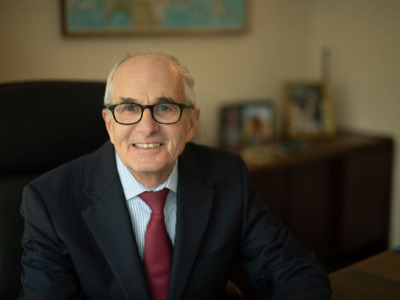Let’s be honest, agriculture remains one of the last bastions of the good old boys’ network. But even in the world of agriculture things they are changing.
From farm ownership, to agribusiness, to Washington leadership, women are entering agriculture in a significant way. Last month USDA reported that “The number of farms operated by women has more than doubled since 1978. Across the country, nearly 300,000 women serve as principal operators on 62.7 million acres of farm and ranchland, accounting for $12.9 billion in farm products in 2012.” Those are significant numbers.
The Farm Service Agency (FSA) has been making a special effort to reach women farmers and ranchers, specifically those who have not participated in, or have not received benefits from USDA or FSA programs.
Many women have experienced barriers that hinder them from becoming a successful farmer or rancher. Some of these barriers are: access to credit and land, marketing, education of the different types of credit programs, loan qualifications, etc. Other barriers may include lack of information regarding what programs may be available, access to FSA service centers, or distrust of government officials.
To break these barriers, FSA is committed to carrying out an effective Outreach program. The goals include:
• Establishing partnerships with members of the underserved and minority groups, community based organizations, community leaders, congressional leaders, educational institutions, and other federal agencies.
• Promoting female representation in FSA County Office Committee nominations and elections.
The action is not all at USDA. Annie’s Project, run by Iowa State and Dean Wendy Wintersteen, has been an educational program dedicated to strengthening women's roles in the modern farm enterprise for ten years. To date, classes have been taught in 34 states.
The 3rd Annual Women in Agribusiness Summit will take place on October 6-8, 2014 in New Orleans. This forum provides an interactive platform for women to discuss their unique experiences within the industry and hear from women leaders regarding cutting-edge industry trends. The 2013 Women in Agribusiness Summit
Future Farmers of America was formed in 1928. Women were not permitted to join the organization until 1969. As of October 2013, the membership was comprised of 44% women and women held approximately 50% of state leadership positions.
This trend is reflected in agriculture’s political leadership. The Chair of the Senate Committee on Agriculture, Nutrition and Forestry is Senator Debbie Stabenow, following Senator Blanche Lincoln. The Deputy Secretary at USDA is Krysta Hardin; Jill Long Thompson is the Chair of the Farm Credit Administration. It was Anne Veneman who broke the glass ceiling at USDA and was the first women to serve as Secretary of Agriculture.


In the private sector women have also broken into senior leadership: Ellen Kullman is Chair of the Board and CEO of Dupont; Patricia Woertz is Chair of the Board and CEO of Archer Daniels Midland Company; and Indra Nooyi is Chair and CEO of PepsiCo. Dr. Mary-Dell Chilton, founder of biotechnology and distinguished fellow at Syngenta, shared the World Food Prize in 2013.
Women are playing a larger role in agriculture trade associations: Jo Ann Smith served as President of the National Cattlemen Beef Association, in 1985; Karen Caplan was the first woman to Chair the United Fresh Produce Association; Nicole Berge is currently serving on the Board of the National Wheat Growers Association.
Pam Johnson, a 6th generation farmer and was the first woman elected to serve as President of the National Corn Growers Association. Reflecting on her career she told us: “The educational and career opportunities for women have greatly improved in my lifetime.
“The men and women in my family have always worked hard together to create a better life for themselves and for the next generation. They are an inspiration to me as I remember them, learn from their experiences and benefit from their efforts. My mother and grandmothers, like many of their peers, were invisible pillars of strength and not always accepted or treated as equals.
“My generation stands strong and solidly on the efforts and advocacy of those who have come before us. As we look to the future, it is our great hope and a focus of our efforts to encourage the next generation and create a culture where women and men can reach their full potential and the work of all is valued whether it is on the farm, in the boardroom, and as leaders in business and government.”
Even law firms are finally catching on, including here at OFW Law. Jody Swaim, Esq., and Barbara Masters, DVM, specialize in food safety and regulatory compliance. Jody was the compliance officer at Sara Lee Foods and Barbara was the Administrator of the USDA Food Safety and Inspection Service. Tish Pahl helps us litigate when all else fails. Eden Shiferaw and Molly O’Connor are Government Relations Advisors. Janie Hipp has joined as OF Counsel specializing in Native American Agriculture
The world of agriculture is indeed changing, and it’s about time.
Allow me to close this article with special good wishes to Sally Donner, who is retiring from OFW Law after ten years, and 22 years representing the Altria Group, Inc. including their former operating companies (General Foods Corporation, Kraft Foods, Inc., and Philip Morris, USA). Sally broke many barriers for women in the food and agriculture sector. Sally and Ken, enjoy the years ahead riding the rails!

